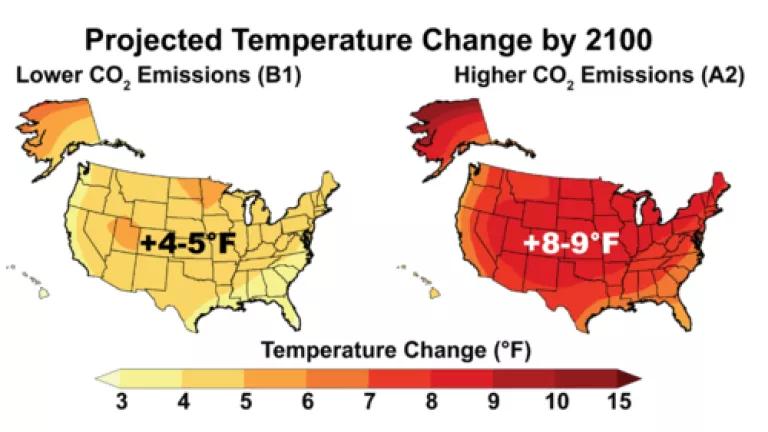
On Monday, scientists announced new findings that the massive West Antarctica ice sheet is rapidly melting due to climate change, and the retreat is now irreversible. One of the study’s lead authors said the ice sheet “has passed the point of no return” and its collapse may lead to a rise in sea levels between 4 to 12 feet over the next two centuries. This sobering news comes on the heels of a major climate report that shows every corner of the United States is feeling the effects of climate change, and carbon pollution is the major driver. The National Climate Assessment made hundreds of headlines last week, including onto the front pages of the New York Times, Washington Post, USA Today, the Los Angeles Times and several other major papers.
Of course, the Third National Climate Assessment (NCA) is more than a quick story for the news cycle. This major report emphasizes that climate change is in our backyards, not just in the polar ice caps. It also projects that the impacts will be much worse over the next few decades without action. As business owners, farmers, gardeners, homeowners, vacationers, and parents, we are the first generation of Americans that cannot rely on past climate records to plan for our future. Having climate information at your fingertips has never been more important.
This four-page NCA summary is an easy starter kit to find out how climate change will affect you and your family. Also, check out these brief state-by-state climate reports to find more specific information about your home state.
You can also take a look here at all chapters available for download. The NCA is a large tome of more than 800 pages, so I’ve outlined some major links below to help navigate the information:
- SECTORS: The NCA reviews the impacts of climate change on sectors like health, agriculture, water, energy, transportation, forests, and ecosystems. It underscores the threats of climate change on human health due to extreme heat, wildfire, degraded air quality and disease-carrying insects. Many cities, from St. Louis to Chicago to Philadelphia, have suffered dramatic spikes in death rates during heat waves, according to the NCA. Climate disruptions from extreme heat, drought, and heavy rainstorms will negatively impact our food security and agriculture systems, affecting crop yields, livestock production, food prices, processing, storage and transport.
- STATES AND REGIONS: State-by-state climate information from the NCA is available at this link, and regional information also exists for the Northeast, Southeast, Midwest, Great Plains, Southwest, Northwest, Alaska, and Hawaii. For example, in the Midwest, climate change not only threatens health and agriculture as outlined above, but also leads to heavy downpours and overflows of untreated sewage. In contrast, the Southwest will experience more droughts as snowpack and streamflow declines.The NCA also includes sections on large areas like Oceans, Coasts, and Rural Communities.
- RESPONSES: For the first time, this latest assessment also includes information on climate change response, including strategies to reduce carbon pollution to avoid worsening risks, and strategies to prepare for the climate impacts that are now unavoidable.
The National Climate Assessment is designed to help us make better decisions with more information. On an individual scale, this may mean simply shifting the date that you plant your spring garden, or purchasing more disaster insurance for your home. On state and national scale, the NCA serves as a call to action to reduce dangerous carbon pollution. President Obama and the Environmental Protection Agency will take a huge step forward on June 2nd, with a proposal to limit carbon dioxide from power plants, the largest domestic emissions source. The next steps will be for Governors to work cooperatively with EPA to reduce carbon pollution in their states. The bright spot at the end of this week’s dark and daunting tunnel of climate news is that we have the power to reduce carbon pollution and avoid the worst risks of climate change. Thankfully many of us, including our elected leaders, are deciding to use that power.
